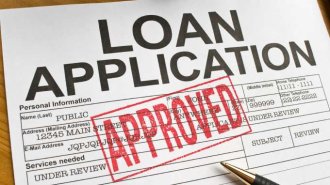
Determining the value of the average car loan in America is a tricky calculation. The federal Bureau of Labor Statistics compiles such information, as do marketing research firms. Loan amounts and rates can vary from the average for several reasons. These include the price of the vehicle being financed, the geographic region of the transaction, and the credit history of the borrower. Borrowers with below average credit scores are likely to face above average interest rates. A borrower with an outstanding credit score is more likely to get the best car loan.
New and Used Car Prices
Since the new cars cost more than used cars, loans for new cars skew the average upwards. In 2001, the Bureau of Labor Statistics estimated the average annual principal payments at $3,579, and average finance charges at $359. Adjusted for inflation, that would equal approximately $4,670 in annual principal and $468 in annual interest. According to CNW Market Research, the average price of a used car in 2008 was $8,244. As of April 2009, the average price of a new car was $28,400.
Interest Rates on Loans
The final car loan price depends on the interest rate. Bankrate.com lists average interest rates for several lenders. Chase offers loans at 4.5 to 6.5 percent. Over a 39-month note on the average $28,4000 new vehicle, monthly payments would range from $803 to $829. Total interest would equal $2,100 to $3,100. Bank of America offers loans at 5 to 7 percent. This means monthly payments from $810 to $835 and the total interest from $2,367 to $3,346. HSBC and Wachovia have higher interest loans, with rates from 9.5 to 11 or even 12.5 percent. Borrowers would pay $868, $888, or $909 monthly. The total interest would be $4,597, $5,361, or $6,136.
Is a New Car More Likely to Get 0% APR than a Used Car?
If you're looking to purchase a new car with 0% APR, you may be in luck. 0% APR is generally acquired or offered to a purchaser who has good credit, a large down payment or both. Because common purchasing habits show that those with good credit are more likely to purchase a new car, there is a better change of getting 0% APR on a new car loan, rather than a used car. However, if you qualify for 0% APR, you can still choose to purchase a used car. Since used cars qualify as anything having at least one previous owner, including luxury vehicles, prices are really a moot point. If you're interested in qualifying for 0% APR financing, talk with your lender first before picking out a car in the event it affects the amount you're able to borrow.